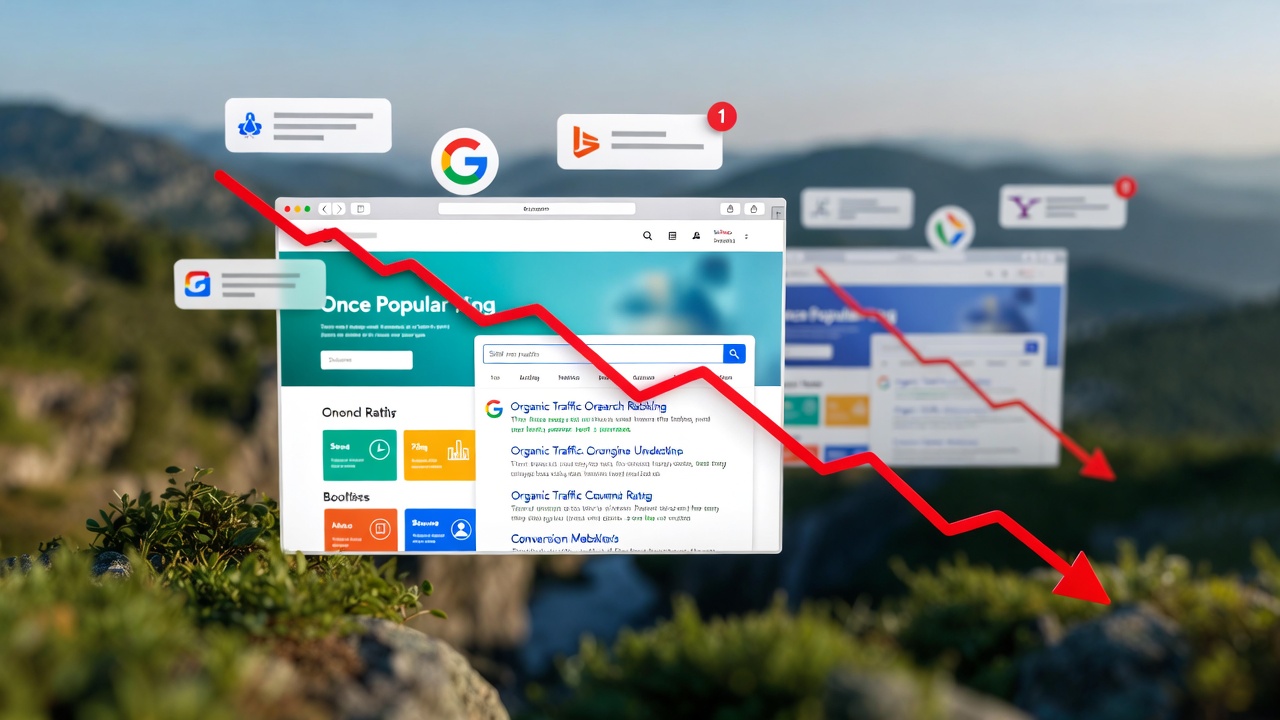Tracking the right SEO metrics is Important if you want to improve your website’s performance and make smarter marketing decisions. This guide breaks down the most important metrics to monitor, helping you understand what they mean and how to use them to your advantage.
Traffic-Based SEO Metrics
Organic Traffic
Organic traffic is the number of visitors who land on your website through unpaid search results. This metric is foundational in SEO it tells you how well your content is performing in the search engines. Tools like Google Analytics and Google Search Console help you track and analyze this data.
Search Visibility
Search visibility refers to how often your website appears in search engine results for relevant queries. It gives a snapshot of your online presence and can be tracked through tools like SEMrush, Ahrefs, or Moz. A higher visibility score usually indicates broader reach and stronger keyword rankings.
Impressions
Impressions represent how many times your webpage shows up in search results. While not every impression results in a click, tracking this metric helps you understand how often your site is being seen, even if it isn’t being visited.
Traffic Value
Traffic value estimates how much you’d have to pay for the same level of traffic via paid ads. It provides context around the ROI of your SEO efforts and can be particularly useful when comparing organic and paid strategies.
Engagement Metrics to Watch Closely
Bounce Rate vs Exit Rate
Bounce rate measures how many users leave your site after viewing only one page. Exit rate shows the percentage of users who leave from a specific page. Both metrics help diagnose issues with content, design, or user experience. A high bounce rate might indicate irrelevant content or slow page load times.
Pages per Session & Average Session Duration
Pages per session and average session duration reveal how engaging your site is. The more pages users visit and the longer they stay, the better. These metrics are critical for understanding user behavior and improving content flow and internal linking.
Time on Site
Time on site gives insight into how long users stay engaged with your content. A longer duration typically reflects relevant, high-quality information. Use this metric to identify which pages hold the most attention.
Conversion-Oriented Metrics
Organic Conversions
An organic conversion happens when a user completes a goal (e.g., filling out a form or making a purchase) after arriving via organic search. This metric is essential for tracking the true business impact of your SEO campaigns.
Conversion Rate
Conversion rate is the percentage of users who complete a desired action. It ties your traffic and engagement metrics directly to revenue and helps you evaluate the effectiveness of your calls-to-action, landing pages, and overall site structure.
Keyword & Content Performance Metrics
Keyword Rankings
Keyword rankings show where your site appears in search results for specific queries. Monitoring your rankings helps identify what’s working, what needs improvement, and where new opportunities lie. Track performance over time to spot trends.
Click-Through Rate (CTR)
CTR measures how many people click on your listing after seeing it in the search results. A low CTR could mean your titles or meta descriptions aren’t compelling enough. Enhancing these elements can often lead to significant gains.
Technical SEO Metrics
Core Web Vitals
Core Web Vitals are Google’s user experience metrics: Largest Contentful Paint (LCP), First Input Delay (FID), and Cumulative Layout Shift (CLS). These metrics evaluate loading performance, interactivity, and visual stability all important for ranking and user satisfaction.
Page Speed & Page Load Time
Fast-loading pages keep users engaged and reduce bounce rate. Page speed directly impacts SEO rankings and user experience. Use PageSpeed Insights or GTmetrix to evaluate and enhance performance.
Mobile Usability
Mobile usability ensures your site functions well on smartphones and tablets. With Google’s mobile-first indexing, mobile performance is no longer optional it’s a ranking factor. Use Google Search Console to detect mobile usability issues.
Indexed Pages & Index Coverage Errors
Knowing which pages are indexed (and which aren’t) helps ensure that your content is discoverable by search engines. Index coverage errors, such as crawl anomalies or blocked resources, can hinder visibility and must be fixed promptly.
Crawl Errors
Crawl errors occur when search engines can’t access a page. These errors can impact how well your site gets indexed and ranked. Regular site audits using tools like Screaming Frog or Sitebulb help identify and resolve these issues.
Technical SEO Issues
Technical SEO issues range from broken links and redirects to duplicate content and poorly structured URLs. Addressing these problems improves site health, user experience, and crawlability.
Authority & Link Metrics
Domain Authority
Domain Authority (DA) is a predictive metric developed by Moz to estimate how likely a domain is to rank. While not a direct ranking factor, DA provides a useful benchmark for measuring the strength of your domain relative to competitors.
Referring Domains & Backlink Profile
A referring domain is a website that links to yours. Your backlink profile includes all external links pointing to your site. A healthy, diverse link profile boosts credibility and helps you rank higher. Focus on acquiring high-quality backlinks from relevant sites.
Website Health and Ongoing Optimization
All these metrics contribute to your overall website health. Monitoring them regularly ensures your SEO strategy remains aligned with business goals and technical best practices. Use platforms like GA4, Google Search Console, Ahrefs, SEMrush, or Looker Studio to build a customized dashboard and streamline reporting.
Final Thoughts: Focus on Metrics That Align with Your Goals
Tracking every SEO metric isn’t necessary. Instead, choose metrics that align with your business goals and audience intent. Whether you’re aiming for visibility, engagement, or conversions, the right data will guide your decisions and help you grow.
Need expert help to optimize your SEO performance? Reach out to Meridian Social for personalized digital marketing strategies backed by real data.



